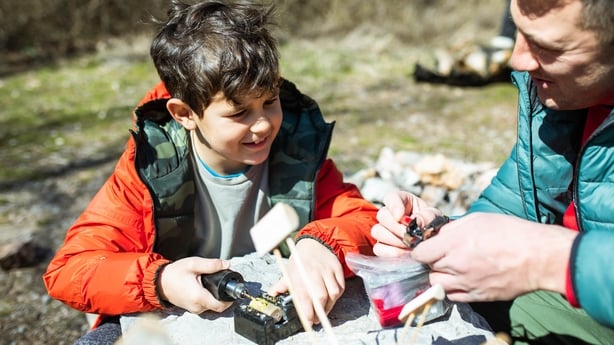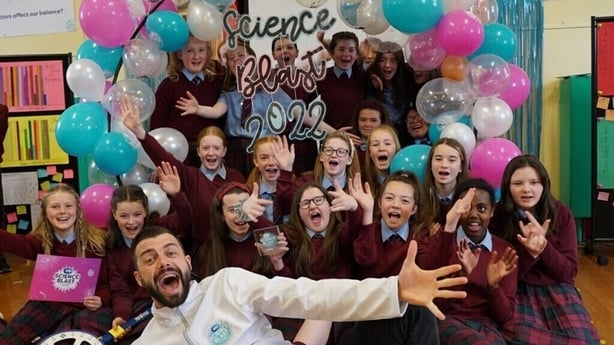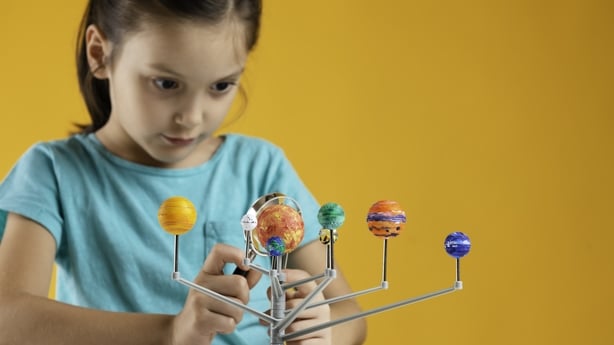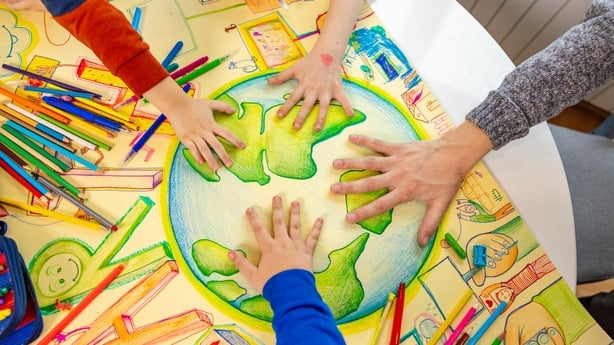Science is something that all people should feel is open to them. Whether you are seven or 70, science offers a creative way for you to learn about yourself and the world around you. Initiatives like ESB Science Blast delivered by the RDS offer children and their families rich ways to do just that.
Dr Shane Bergin is a physicist and Assistant Professor of Science Education at the School of Education, UCD who has created and participated in several science education programmes. Here he writes to celebrate the positive impacts these have, and to offer support to family members of children taking part.

The questions that children ask are a perfect place to start.
In 2022, children taking part in ESB Science Blast played with questions of their own design. Any of you who have the pleasure to live or work with young children will know that the following sample questions could come from any child: 'How do worms move?'; ‘Could a magnet attract the iron in breakfast cereal?’; ‘Could the Three Little Pigs have built better homes with sticks and hay?’; and ‘Why are dog noses wet?’.

'If the length of someone’s ribs affects their sports performance?’
Every child goes through a period of asking ‘why’. As they begin to learn about themselves and the world around them, perhaps the continuous ‘why’ questions are not all that surprising. Many children’s questions focus on simple everyday things - simple until you think about them.
A child’s capacity to notice the extraordinary in the ordinary is something that most (adult) scientist take years to master. If anything, collecting the out-there, wacky, questions posed from the back of the car on long journeys and returning to them on rainy days offers hours of fun (and hopefully a little peace and quiet).
The best way to learn about science is to do science.
Given the abstract nature of many questions children ask, family members might be reluctant to engage unless they feel their own knowledge on the matter is encyclopedic. It's okay to start from a place of uncertainty. In one sense, if you knew the answer, why would you bother doing science to reach a conclusion you’re already confident of?

Of course you could probably just Google the answer to virtually every question that children ask but where’s the fun in that? The best way to learn about science is to do it. The time you’ll spend with the child playing, imagining, and sharing is precious. So don’t worry if the science goes horribly wrong and you have to start again and approach things differently. The beauty of projects like ESB Science Blast is they are not homework or done to get a grade in a test. If the child is working on a question that’s of genuine interest to them, they will stick with it and will be proud of the results.
The process is as important as the outcome
The way that science works is as important as the outcomes it produces. Programmes that see children use the scientific process to arrive at conclusions offer a window on how science works. This is essential for them, and indeed all of us, to distinguish the reliable from the fake. Research shows that if we wish to increase public trust in science (essential for issues such as Climate Change and vaccination), far more effort must be made to talk about how science is done. It's important that this effort begins in schools.

Enjoying yourself and curiosity are valid reasons to take part.
With all the pressures placed on young people to do well in exams (particularly in maths and science subjects), it can be easy to forget that people might like to do science or maths for fun!
Free from the focus of CAO points or the pressure of getting full marks, informal projects can teach us all a great deal about the value of learning for learning's sake.
Dr Shane Bergin is a physicist and Assistant Professor of Science Education at the School of Education, UCD. Shane is on Twitter at @shanedbergin.
ESB Science Blast, delivered by the RDS, is a free and fun-filled, interactive way to engage for primary schools to engage with STEM skills (Science, Technology, Engineering and Maths).
For more visit http://www.esbscienceblast.com


